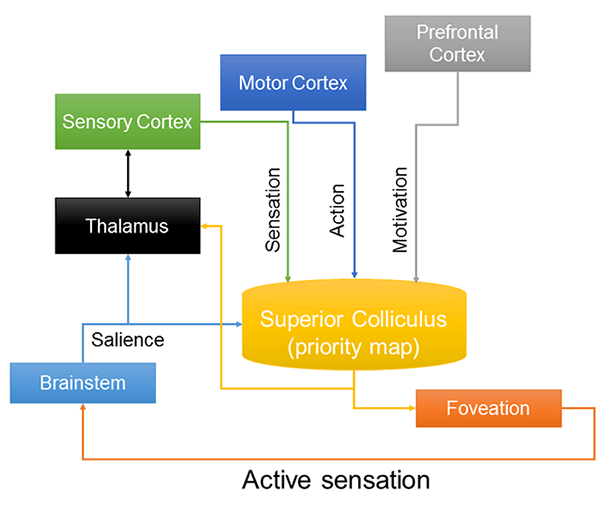SCOTT PLUTAAssistant Professor765-494-7526 Lilly 1-227 spluta@purdue.edu Associated website(s): |

|
PROFESSIONAL FACULTY RESEARCH
Research in my lab focuses on elucidating the neural mechanisms underlying sensory perception, sensory-guided behavior, and sensorimotor loops. We use cutting-edge optogenetic, neurophysiological, viral tracing and behavioral tools to probe the functional connectivity of neural circuits underlying sensation and action.
BIO
Postdoctoral research
University of California, Berkeley, 2012-2017
Wake Forest Medical Center, 2009-2012
Education
Ph.D., University of Virginia, 2009
Research Focus
Research in my lab focuses on elucidating the neural mechanisms underlying sensory perception, sensory-guided behavior, and sensorimotor loops. We use cutting-edge optogenetic, neurophysiological, viral tracing and behavioral tools to probe the functional connectivity of neural circuits underlying sensation and action.
Research Motivation
Navigating the environment is an active process that involves a constant interaction between sensory perception and motor action. Essential to this process is the ability to identify and respond to features in the environment most relevant to our goals. The midbrain superior colliculus (SC) is a centralized hub that integrates sensory, motor, and motivational information to guide this active sensing process. Converging signals from the cerebral cortex, basal ganglia, and brainstem inform the SC about the location and physical properties of a stimulus as well as its perceived value or relevance. Emerging from this weighted integration of salience and goal-directed relevance is the prevailing theory that activity in the SC represents a "priority map" for spatial attention.

A primary focus of my lab is to understand how descending input from higher order brain regions influence the activity of the SC and shape its intimate connection to behavior. We utilize genetically targeted labeling of cortical neurons and optically manipulate their activity to dissect the physiological and behavioral significance of cortico-collicular circuits. To form a complete understanding of the sensorimotor loop, we will causally test the significance of activity ascending from the SC to higher order thalamic and cortical circuits. Ultimately, research from my lab will provide valuable insight into the neural mechanisms underlying goal-directed behaviors and enable us to provide better treatment for neurological disorders, such as ADHD and Parkinson’s disease.
- People
- Faculty
- Staff
- Postdoctoral
- Emeritus